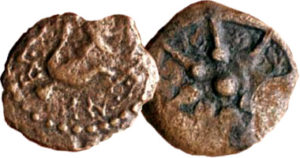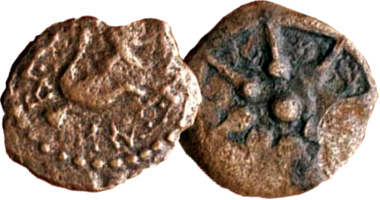How Does the Sacrifice of the Widow’s Mite Apply Today?
Podcast: Play in new window | Download
Subscribe: RSS
 How does Mark 12:41-44 apply today? Does Matthew 19:21 apply to this example? If so, how?
How does Mark 12:41-44 apply today? Does Matthew 19:21 apply to this example? If so, how?
Mark 12:41-44 is the story of the widow who cast in her two mites to the temple treasury. Jesus said of her, “Assuredly, I say to you that this poor widow has put in more than all those who have given to the treasury; for they all put in out of their abundance, but she out of her poverty put in all that she had, her whole livelihood.” Jesus was teaching the disciples about giving. His point was that the quality of giving is more important than the quantity. The rich, in this context, were putting a lot of money into the temple treasury. We know that they made a big deal out of this by sounding trumpets when they gave (Matthew 6:2). They thought that by their giving so much money to the treasury, they would be saved. We know that the Pharisees believed that they could be excused from taking care of their elderly parents if they gave money to the temple treasury (Matthew 15:5). Jesus is calling attention to the fact that it is really easy for the rich to give large amounts of money to the treasury. In other words, for them, it isn’t much of a sacrifice, because they are giving from their abundance. Anyone can do that. It was a real sacrifice for the widow to give her two mites because they were her entire living. She was really trusting in God to provide for her. The rich were trusting in themselves and their own righteousness. So, it wasn’t the amount of money that interested Jesus, it was the attitude of heart that he was concerned about. We’ve got to give to God in a way that is going to demonstrate that we trust in God to provide the things that we need. If we will do that, then God will see how we are giving, and He will take care of us.
The second part of the question has to do with Matthew 19:16-22 which is the story of the rich young ruler. While verse 19 doesn’t relate directly to the story of the widow and her two mites, the principle is the same. The rich young ruler had a problem with his riches. They dominated his life. He was looking for a way to justify his own love of riches. He sought to use religion to do that. So, he came to Jesus and asked about what he needed to do to enter eternal life. Jesus told him to keep the commandments, which he said he had done. So Jesus gave him the real challenge of his life, and he told him to sell all that he had, give it to the poor, and follow Jesus to have treasure in heaven. However, he didn’t want to do this, and so he goes away sorrowful. The action reveals to us his real motivation. He wasn’t looking to go to heaven, per se, but to use religion to justify his love of money. Like the rich who were casting into the temple treasury of abundance, this kind of life isn’t a sacrifice. So, Jesus put a real opportunity for sacrifice in front of him. It’s not what he really wanted.
The lesson from both of these stories is that we must be the kind of people who offer real sacrifices to God. Paul tells us in Romans 12:1-2, “I beseech you therefore, brethren, by the mercies of God, that you present your bodies a living sacrifice, holy, acceptable to God, which is your reasonable service. And do not be conformed to this world, but be transformed by the renewing of your mind, that you may prove what is that good and acceptable and perfect will of God.” If we are going to be the kind of people that God wants us to be, then our lives must be a sacrifice for God on a daily basis. Sometimes we sing the song, “I am mine, no more.” This is the idea. Everything that we are and have belongs to God, and we are just stewards of those things. We can choose to use those things for our own pleasures, or we can use them to the glory of God. To do the latter requires real sacrifice.

